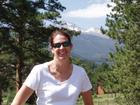I'm taking a class in advanced qualitative research methods this fall which I'm thoroughly enjoying. It seems to be dovetailing with my work at the library a bit which is both fun (or else I wouldn't be doing it) and informative because it's forcing me to look at a kind of qualitative research that I don't thing is covered directly in class.
One of the English professors at TAMUCC asked me to speak to her master's level Bibliography and Research Methods class about the different kinds of research. When I asked her whether she was looking for a particular focus she said she wanted a broad overview for them with an emphasis on research methods in the humanities. Well, what an exciting challenge! I know very little about research methods in the humanities having focused on the social sciences mainly with some peeks into the sciences for contrast.
So I began collecting books about humanities research and discovered some very cool things. For instance, research in the humanities places much more emphasis on the hunt for literature on a topic. There are loads of how-to books about how to find resources for humanities research (my personal favorite being Thomas Mann's The Oxford Guide to Library Research) but very few on how to "do" the discovery process and the criteria upon which how that process is judged by peers. Where as in the social sciences "research methods" books focus on a larger number of different aspects of conducting research including developing a research problem/question, selecting data collection and analysis methodologies, theoretical orientations, theoretical frameworks, guidelines for reporting results and judging quality.
At the moment, I think this is because in the social sciences (and the hard sciences), researchers create their own data (e.g. they measure something or transcribe interactions or write notes) whereas in the humanities, researchers don't create their data, they have to go out and find it (e.g. in primary and secondary documents). So the emphasis on "how to do" research in a discipline is focused on where the data comes from.
Anyhow, I managed to create a fairly general matrix comparing qualitative research and quantitative research for the class and spend about 45 minutes talking with them about the differences and similarities. Then I asked them to break into groups of three or four and gave each of them a research "type" from the matrix and asked them to develop a research problem/question and tell the rest of us how they would collect data to answer it. They all worked with the same issue: assessing learning outcomes for students in a first-year learning experience.
I expected pretty superficial responses given that they'd had all of 45 minutes of introduction but they accepted the challenge enthusiastically and came up with some really wonderful answers. What was really cool (for me) was how their answers provided me with material on which to expand my earlier explanations about qualitative and quantitative methods. For instance, one group described how they would use three different sources of data for a qualitative analysis of the issue which allowed me to expand on how qualitative projects are judged on trustworthiness and on some other ways to achieve trustworthiness (since they'd already described triangulation). I was inspired to create this exercise by John W. Creswell's book Qualitative Inquiry and Research Design: Choosing among five approaches (Sage).
I had such a good time teaching this class that I had a hard time stopping and leaving. When I did I met one of the students in the hall. She told me about how much she disliked this class because she wanted to do creative writing, not research. So I told her about narrative research where the researcher's job is to tell the story of an event or phenomenon in an individual's life. I gave her an example from Creswell's book. When I was done there was this amazing spark in her eye. She thanked me enthusiastically and asked if I thought that she could use narrative research for her final project in class.
I CANNOT TELL YOU HOW COOL THAT WAS! There is no way I can describe how that made me feel. It is so thrilling to be able to spark a student's interest, to watch the "ah ha" in their faces. It reminded me of the feeling I had the first day of library school...this is awesome, I love doing this, why didn't I know this was possible?!?! And I can't wait to do it again!

Subscribe to:
Post Comments (Atom)
Live chat
About Me

- SWS
- I am... a wife a daughter a sister/sister-in-law an aunt a reader a librarian a doctor a quilter a niece a grandmother ;-) a cat owner 6 feet 1 inches tall a yoga enthusiast a cook
No comments:
Post a Comment